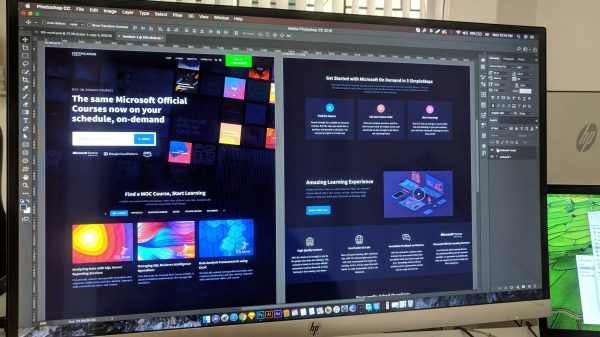Software engineering has never been more important. In a day and age where we’re all dependent on apps and programs to help make life and work easier, we need engineers not only to design software but also to maintain it and keep it working as expected.
However, for all that technology evolves — as does consumer and user demand — there are always a few key tools software engineers need to develop apps and keep everything operating properly.
If you’re considering a new career in software engineering or are interested in learning more about what’s involved in an engineer’s daily workload, you’re in the right place. Let’s look at some common technology that engineers are likely to rely on when working with software of any complexity and scale.

Programming languages
To program any kind of software, you will need to have a solid understanding of coding languages. There are several different programming languages to learn, so it pays to understand as many as possible.
For example, if you’re just getting started with coding and programming, it’s likely you’ve heard of JavaScript and Python. But what about Kotlin and Golang?
Software engineers depend on a broad knowledge of programming languages so they can solve a wide range of problems. Learning how to code in multiple languages might show an engineer how one issue is much easier to solve in, say, JavaScript, than it is to understand through Python.
Broadening their programming skills by learning a variety of languages also helps to keep doors open to software engineers and developers. It’s something more engineers will also learn when they first start their formal education.
If your goal is to get a software engineering job, an online Master’s in Computer Science at a reputable institution such as Baylor University will build on your knowledge of mainstream programming languages and teach you how to use them to build advanced applications. You’ll get lots of chances to practice too. Students will study a wide range of topics, such as applied artificial intelligence, software verification and validation and advanced object-oriented development.
Integrated development environments
Integrated development environments (IDEs) are vital for software engineers to develop and test out code before it goes live. IDEs offer more than just the functionality for engineering students to write and edit code as they see fit, however.
IDEs help engineers compile lines of code and offer various tools and resources to inspect and debug any programming they’ve written.
Modern IDEs give coders and engineers open playgrounds to try new coding techniques and experiment with projects without worrying about causing reputational damage or leaving users scratching their heads.
Automation in IDE technology is helping to streamline the coding process, meaning it’s getting more efficient for engineers to test and launch their software. This is certainly an advantage as the demand for engineering time increases with consumer requests.
Version control systems
Version control systems, frequently known simply as version control, refer to the tracking of changes made in coding and associated projects. Engineers rely on these programs to easily see what has been altered over time and make changes to produce new effects.
It’s another way for engineers and coders to play with projects without launching them and risking any errors going live. Specifically, editing and monitoring changes by using version control ensures that the previously tested code remains unspoiled. Engineers only overwrite the previous code when they are confident that their changes do what they expect.
Using version control is vital when learning how to program software for the first time, and perhaps even more so during ongoing development. It supports a trial-and-error mindset in that you’ll never get the perfect code right the first time, so why not play around and experiment along the way?
Version control can help engineers explore their skills and find new ways to solve common software problems. They’ll likely come across version control management through formal education, if not through exploration in their own time.
Cloud platforms
While many of us use cloud platforms to store data and run programs, software engineers use floating resources to test code and monitor how their program works.
For example, a software engineer might use a virtual server and environment in the cloud to create a lifelike build of their eventual programs — without pushing it to users.
Cloud servers and platforms help engineers develop and edit code in real-time to improve efficiency when working to meet deadlines. They can use cloud servers to ensure the security of their programming too, so there are no concerns when finally going live.

Database management systems
Database management systems (DBMS) act as user-friendly front-ends to help programmers and engineers access big data stored in complex tables and siloes behind the scenes.
Using DBMS often proves more efficient for engineers looking to access files and resources when compared to simply dipping in and out of traditional file storage.
DBMS are available in many types, sizes and styles and have various purposes. When studying software engineering, students will typically manage their projects via one of these systems, bringing together several other resources mentioned in this list.
DBMS are widely used by novices and experts in software engineering alike, thanks to the ease of access they provide to data and source code. It’s likely many engineers will find a preferred system or program and acclimatize to it over years of development.
Do all software engineers use the same technology?
Not at all. Many engineers will find they change the tools they prefer as they grow. In addition, there’s no “perfect setup” to use when starting coding.
It’s even possible to build apps without coding, meaning it’s always worth keeping an open mind with regard to new technological advancements.
Final thoughts
Throughout education and as they learn on the job, engineers will build a preferred technology stack based on recommendations from tutors, mentors and fellow users across the years.
If you’re getting into software engineering for the first time, it’s good practice to start researching which tools and programs are preferred by those at all stages of development. This way, you can hit the ground running once you start your studies.































